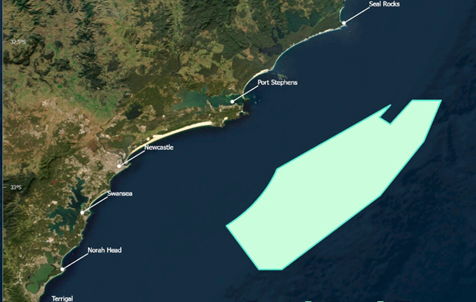
The Australian Government has declared an area in the Pacific Ocean off the Hunter, New South Wales (NSW) as suitable for future offshore wind development.
The announcement follows the declaration of Gippsland off the Victorian coast and will improve energy security, affordability, and sustainability and bring us another step closer to net zero by 2050, the Government said.
The declared Hunter area covers 1,854 square kilometers between the Central Coast and Port Stephens. It is located 20 km from the coast in the north and over 35 km from the coast in the south.
According to the Government, the Hunter area has the potential to generate up to 5 gigawatts of renewable wind energy, enough to power an estimated 4.2 million homes.
Also, it has the potential for offshore wind projects in the area to create up to 3,120 construction jobs and another 1,560 ongoing operational jobs.
The period for developers to submit feasibility licence applications for proposed offshore wind projects in the Hunter area will open on 8 August 2023 and close on 14 November 2023.
During the feasibility stage, licence holders must undertake detailed environmental assessments and further stakeholder consultation to advance their specific project proposals.
Construction cannot begin until the feasibility stage is complete, and environmental and other approvals are in place.
Back in December 2022, the Australian Government formally declared the Bass Strait off Gippsland as Australia’s first offshore wind zone, and awarded Major Project Status to the Star of the South Offshore Windfarm Project off the Gippsland coast.
The declared area in Gippsland, Victoria, covers about 15,000 square kilometres offshore, and runs from Lakes Entrance in the east to south of Wilsons Promontory in the west. According to the Government, the windy Bass Strait off Gippsland, and the strong grid across Gippsland and the La Trobe Valley, mean this area can support more than 10GW of year-round wind energy generation.